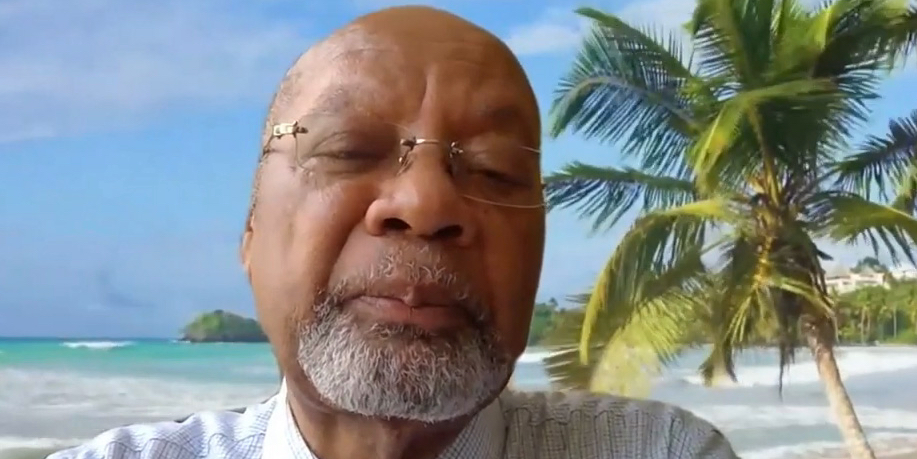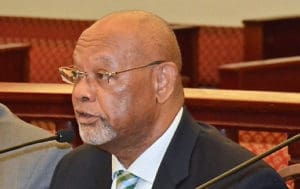
The Government Employees’ Retirement System board of trustees has tried since 1999 to motivate Virgin Islands senators to do something to save the retirement system, but, since measures that only nibble at solving a financial catastrophe have been taken, it appears the message has not gotten through clearly.
Sometimes the board’s message has backfired. When trustees at the end of last year recommended a program to save the system, legislators reacted by, instead of acting, accusing the trustees of using scare tactics on the retirees. Senators have often criticized the board of trustees concerning investments and loans; matters which have only tangentially affected the system. The chairman of the board left at the beginning year, and the administrator of the system has announced his retirement.
Last week, Board Chairman Nellon Bowry sent a letter to all retirees stating explicitly that he believes that it is up to the Senate to do something now for the system or catastrophe is going to hit the territory.
He concluded his letter, which was included in a newsletter to retirees, “Two things are clear: one, all the roads to a remedy run through the Legislature; and two, it must be the 34th. Otherwise, the slide into insolvency will be unstoppable.”
He began the letter pointing out the positive development that was the GERS, created by the Legislature 62 years ago. He writes, ”Its primary purpose was to encourage Virgin Islanders to enter and remain in the service of the government by providing an attractive retirement benefits package. After fulfilling its purpose admirably for six decades, GERS is, literally, a couple of years away from insolvency, about to die an ignominious death with calamitous consequences.”
Much has changed in the territory since GERS was formed. A 1999 Source article said GERS’ spiral downward had already started. Testifying before the Senate, GERS officials said the system had a $20 million deficit that year and had to liquidate a chunk of its assets to meet retiree payments. According to then GERS board chairwoman Corine King, in fiscal year 1998, some $76.8 million was received in employer and employee contributions. However, $83.9 million was paid out in benefits. It was reported that the number of retirees has doubled from 1994 to 1999. At that time, according to testimony, some 10,646 employees were making annual payroll and there were 5,301 retirees receiving annuities.

The numbers have gotten much worse, according to Bowry, with retirees now collecting annuities outnumbering employees contributing to the system. This is unsustainable, and Bowry said it’s been obvious for years.
“We have known for a long time that calamity was coming. Actuaries, auditors, and taskforces have chronicled the fiscal decline and told us what must be done to reverse it,” he said.
A good deal of Bowry’s letter is devoted to what will happen if the Legislature does not do anything soon.
“When insolvency comes, a lot of bad things will happen to a lot of good people. In the best-case scenario, 8,800 retirees will see their annuity payment cut in half, reducing the average benefit payment to well below the Virgin Islands minimum wage. This would be particularly catastrophic for three-quarters of them, whose current benefit is already below minimum wage. Two-thirds are 70 or more years old – the most vulnerable among us,” said Bowry.
“It’s not just retirees. Another 8,700 active employees will have their retirement plans shredded. More than half have more than 15 years of credited service – years of enforced salary deductions all for naught. Assuming one adult dependent for each of the 17,500 distressed members, it would mean 35,000 disaffected constituents – two-thirds the number of registered voters. The reduction of benefits would hamper their ability to make rent, mortgage, and utility payments and to pay for healthcare, which aging citizens increasingly require. The overall increase in the poverty level is likely to overwhelm the territory’s fragile social services infrastructure,” said Bowry.
“The loss of hundreds of millions of dollars in annual disposable income will multiply and spread through the wider economy. This would cause a reduction in the GVI tax capture and a contraction in the territory’s economy that is likely to be greater than the Hovensa refinery closing – with a much higher misery index. The bad news is that the best-case scenario is not the most likely; it really could get worse,” he said.
In February, right after becoming the chairman of the board of trustees, Bowry met with members of the Senate and after the meeting was quoted as saying, “I left the meeting believing that the GERS has the full attention of the senators and the responses provide hope that we will work towards a solution very soon.”
Senate President Donna Frett-Gregory said she was committed along with her colleagues to work to protect active members and retirees, ensuring the sustainability of the system.
However, since then few proposals have been heard. Proposals about helping the system with funds through the legalization of marijuana, or the startup of the refinery, appear to be dreamlike.
The Senate has an upcoming session but nothing concerning GERS is on the agenda.
Sen. Novelle Francis told the Source in April, “The cuts to annuities recommended by GERS should only be considered as a last resort, considering the real and traumatic effects on people’s lives and our economy.” In obvious agreement with Bowry, he added, “The plan sponsor (the government) ultimately should determine any modification to retirees benefit, not the GERS board.”